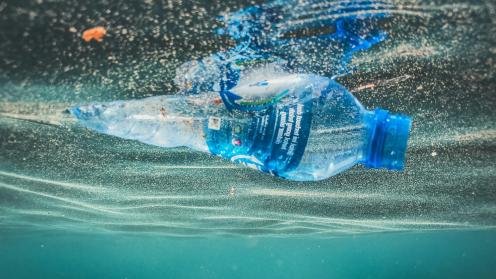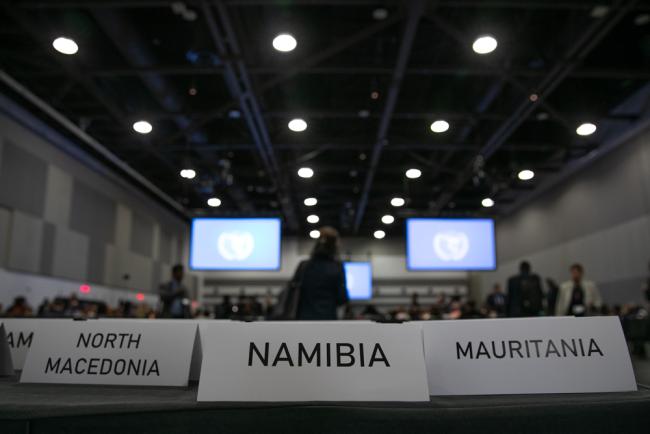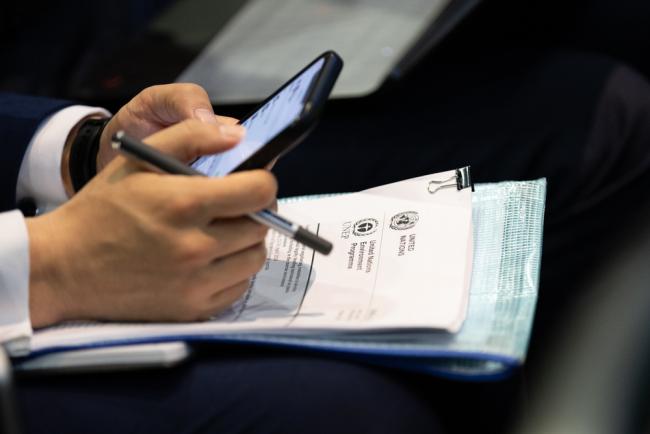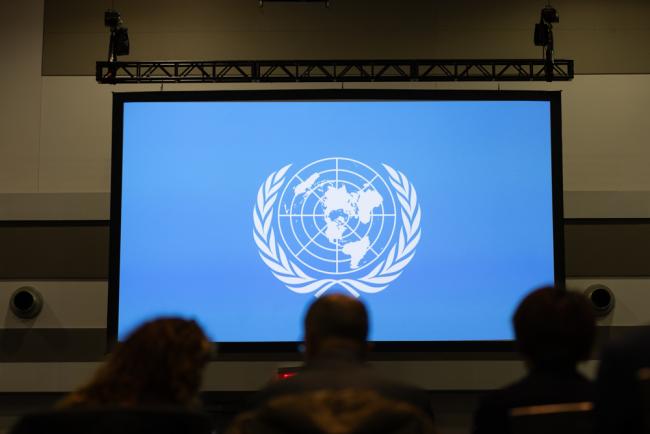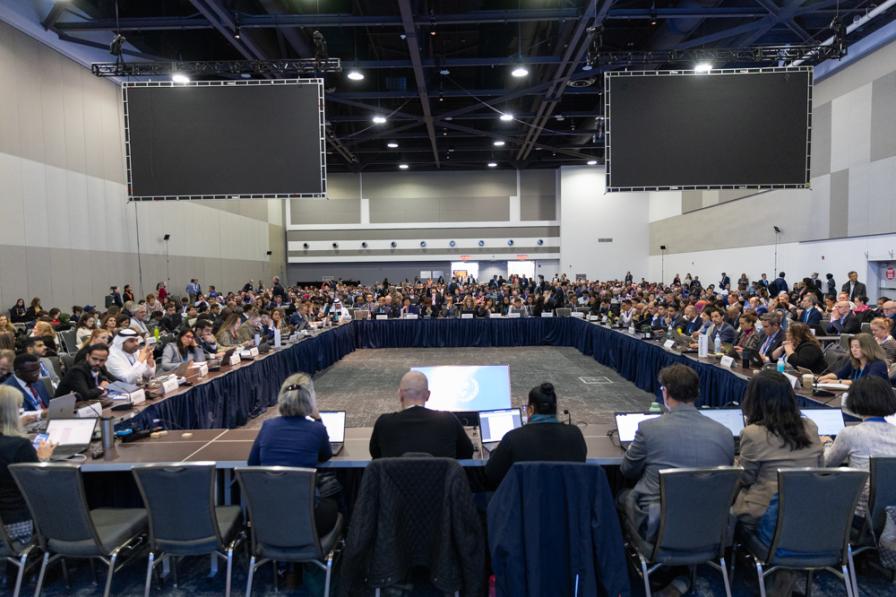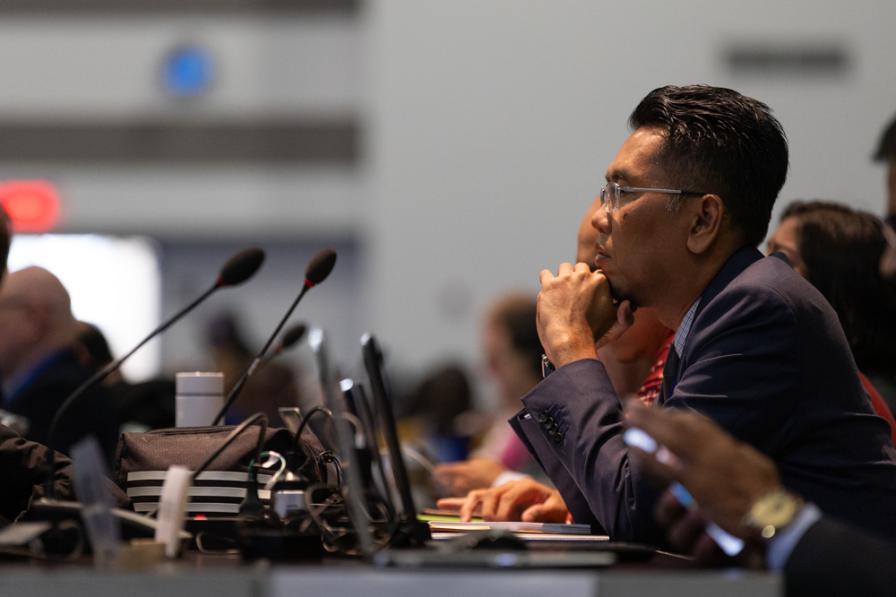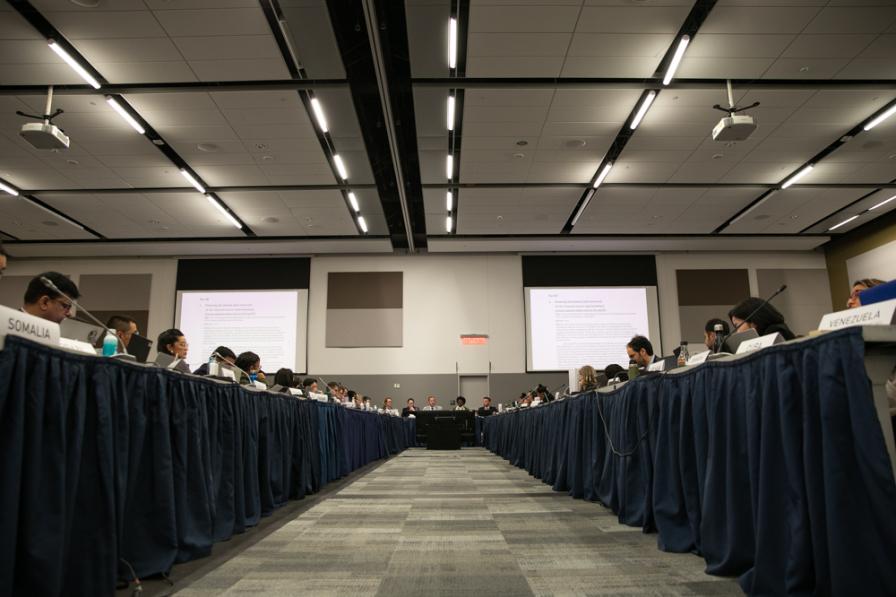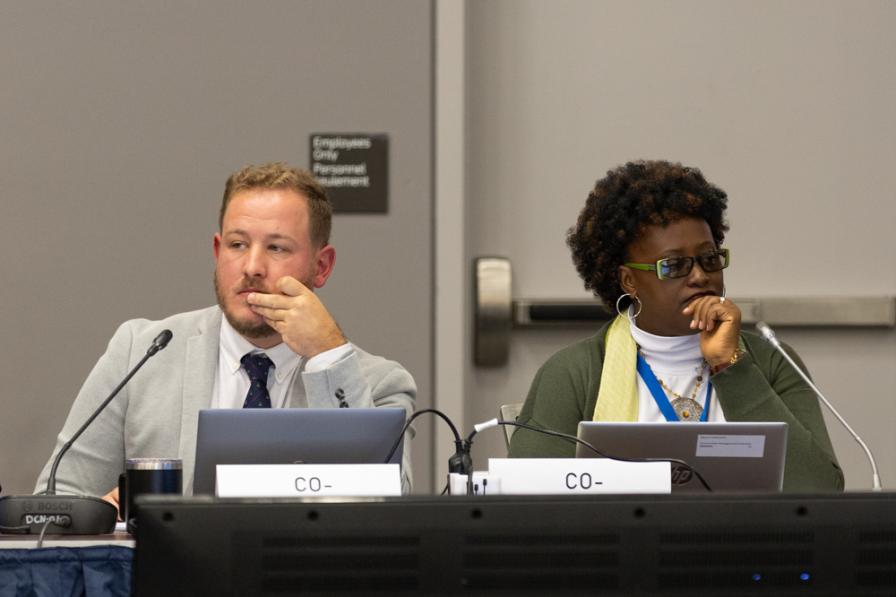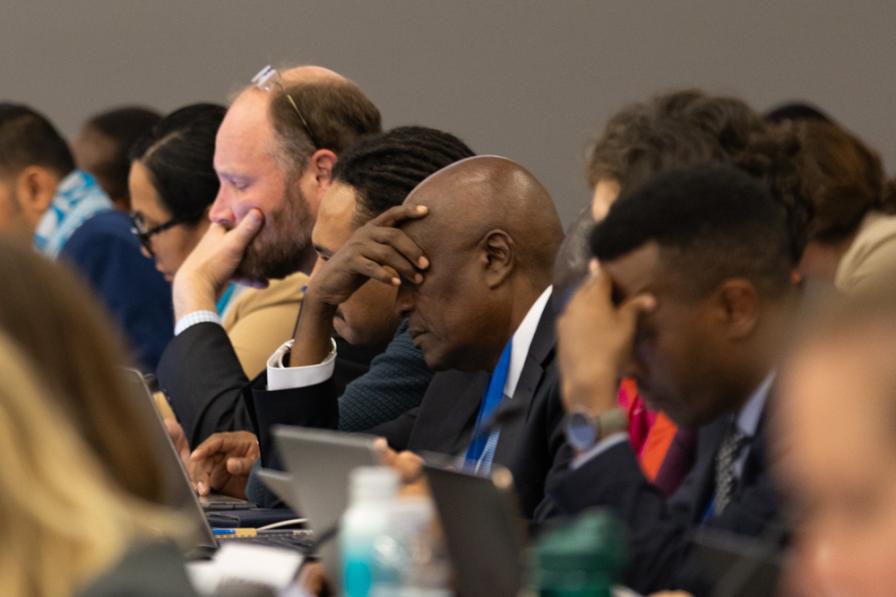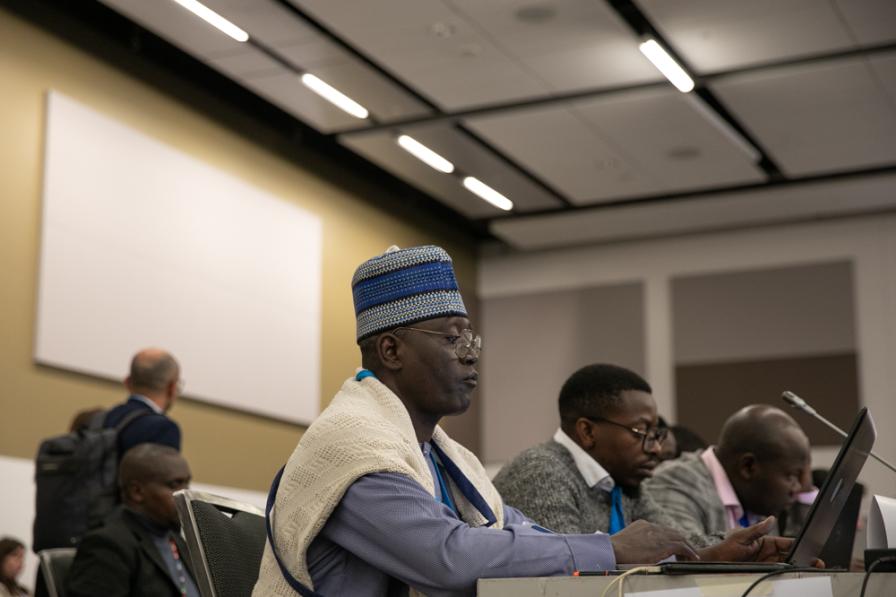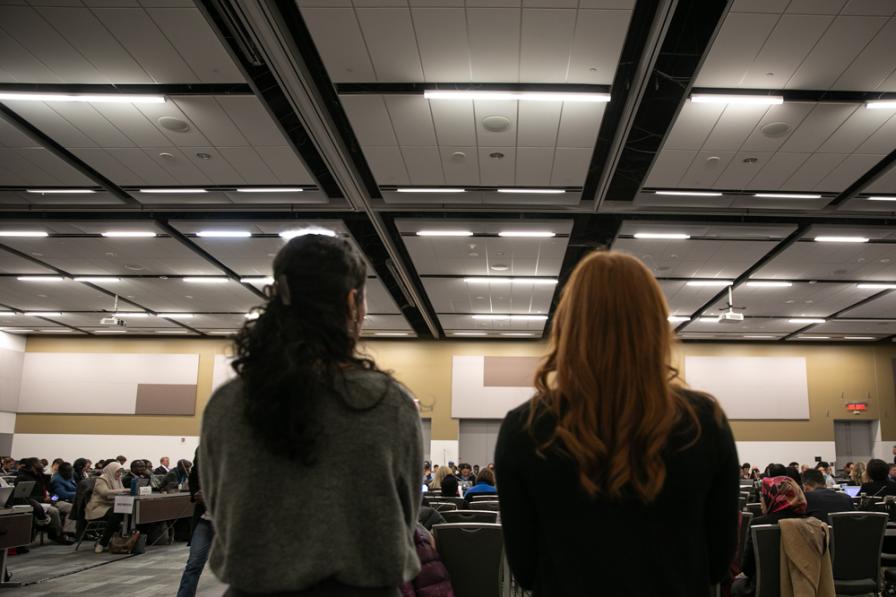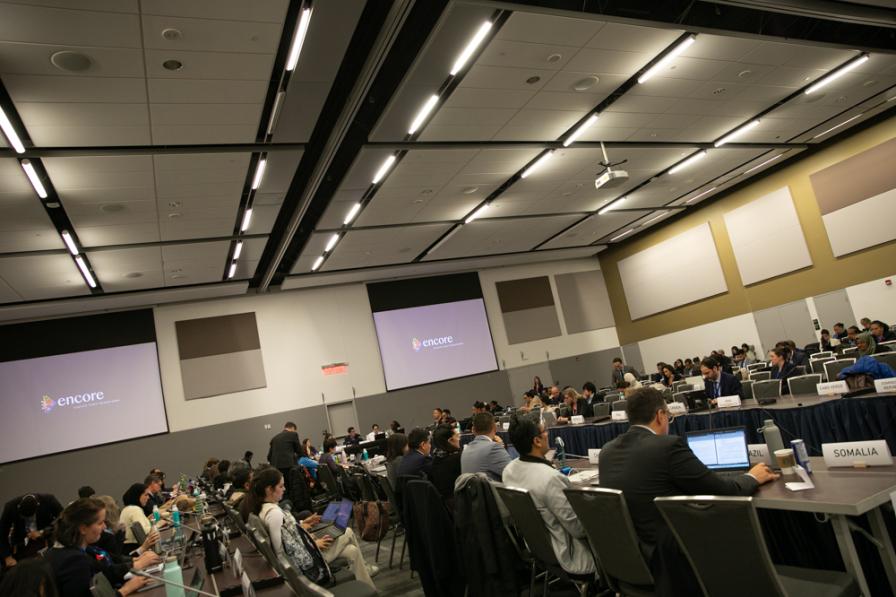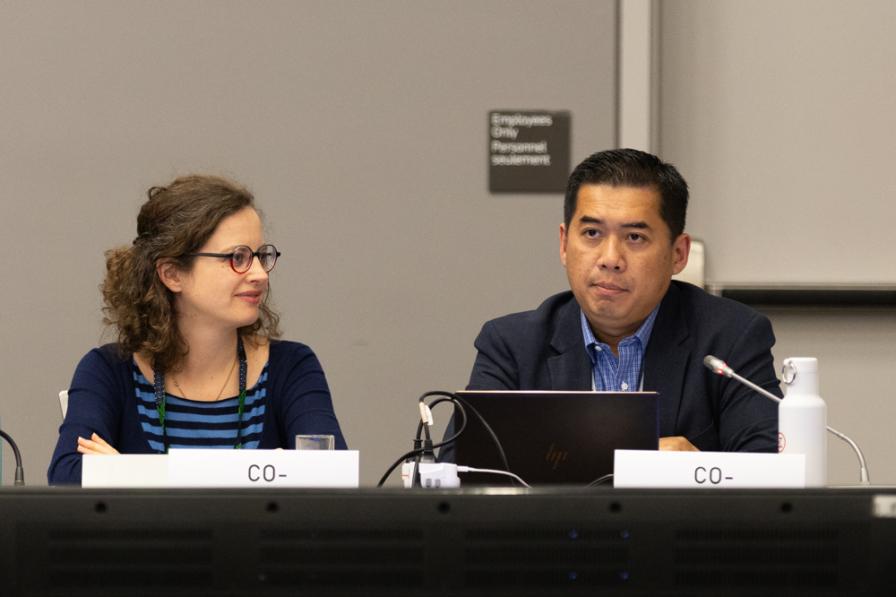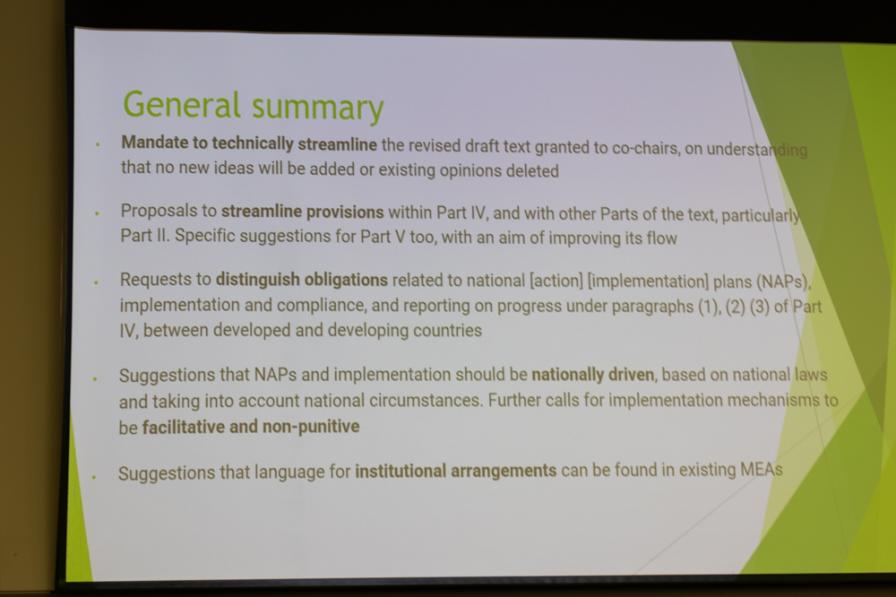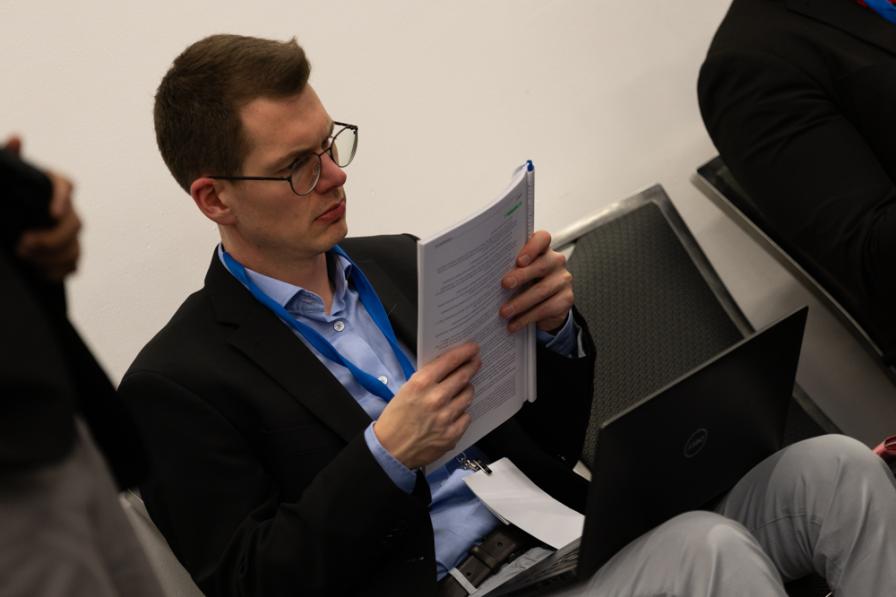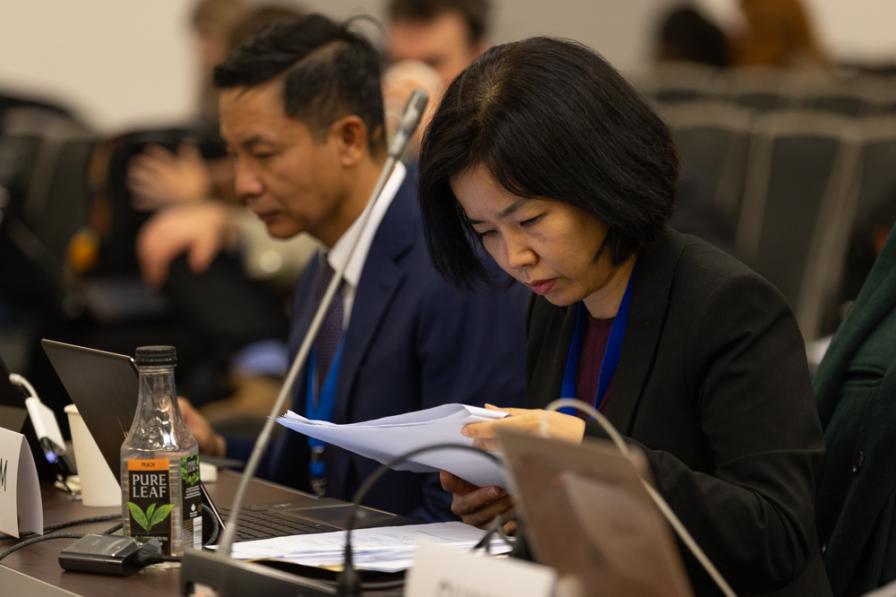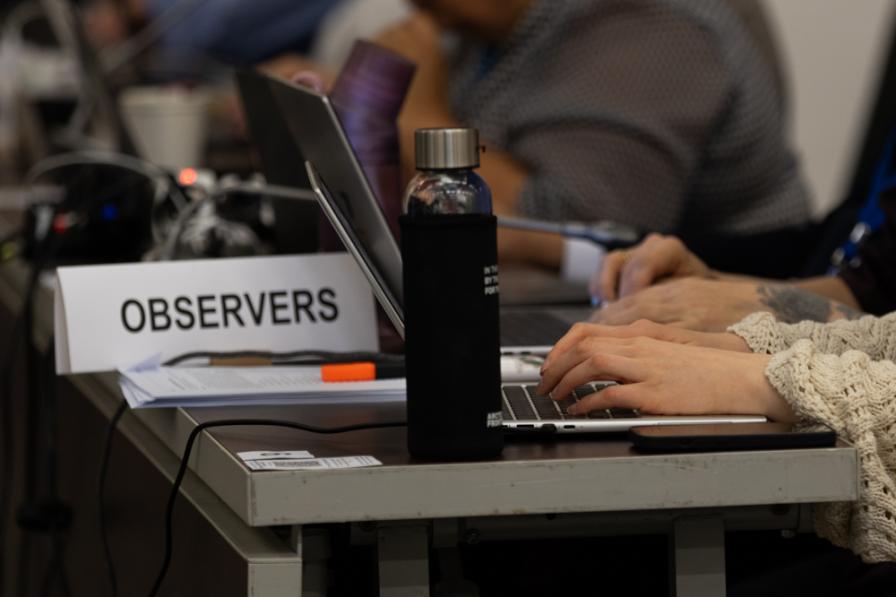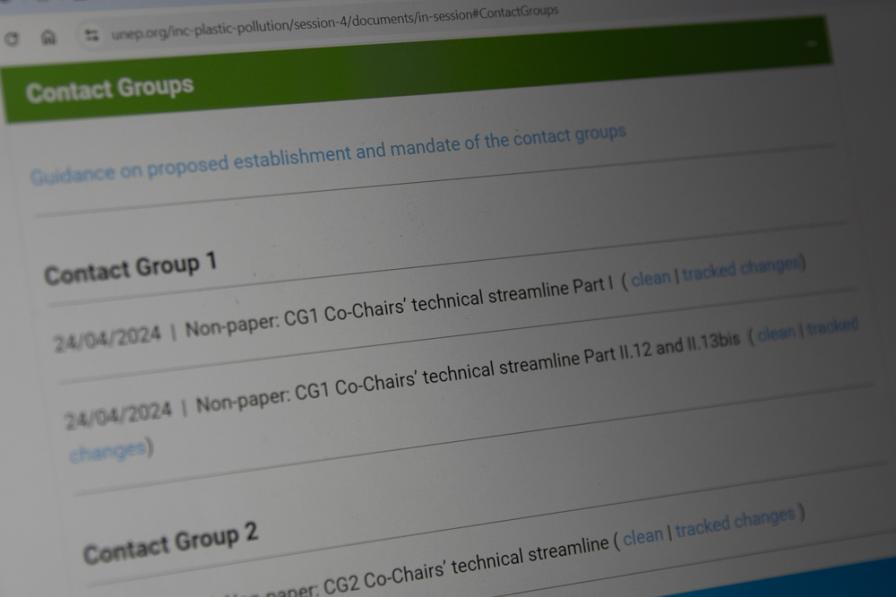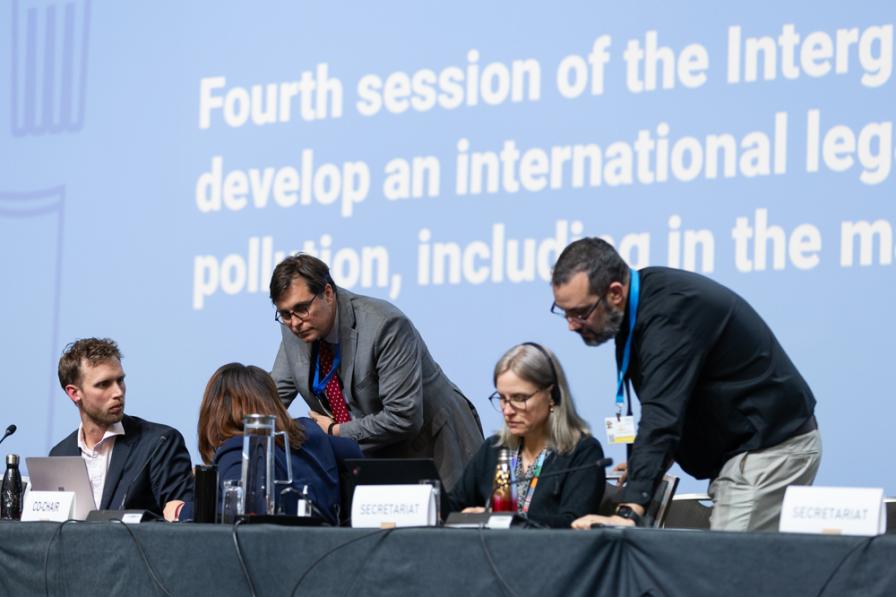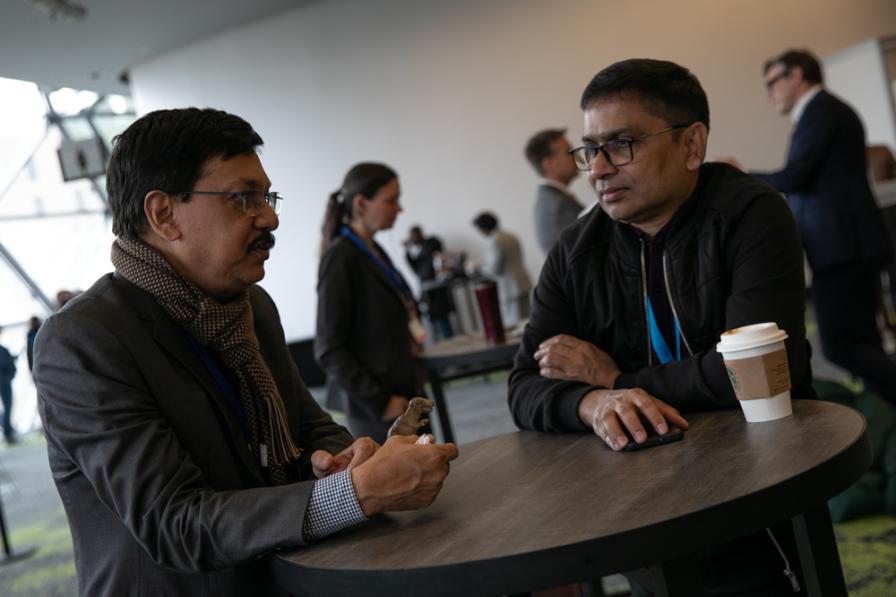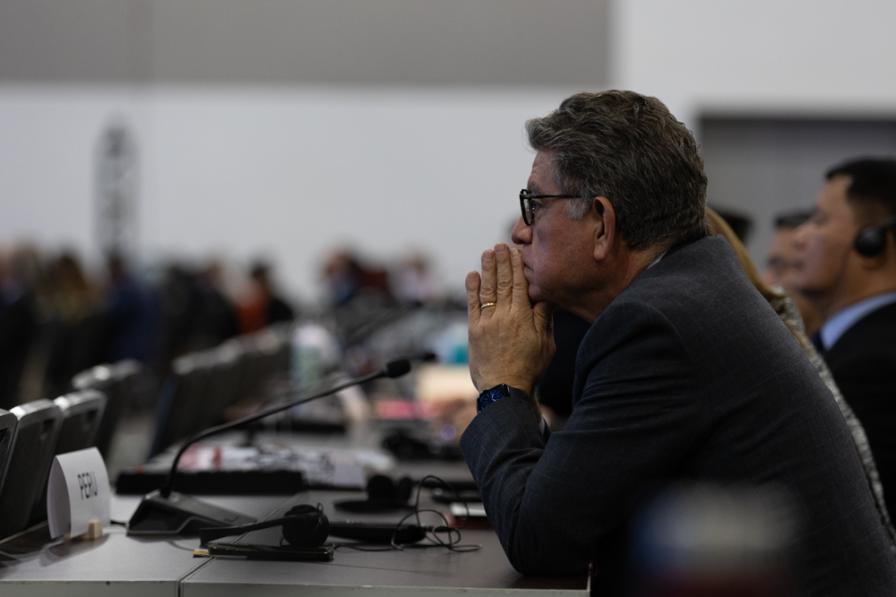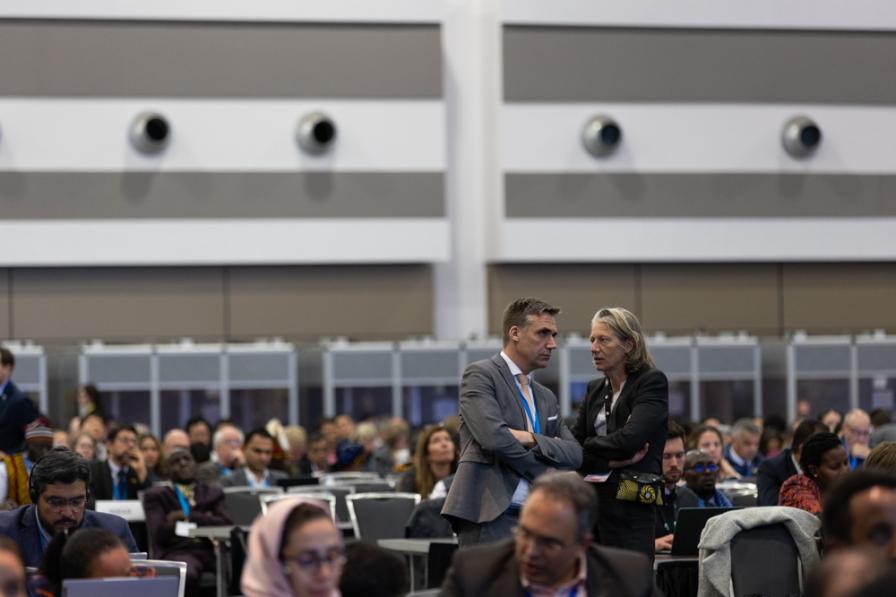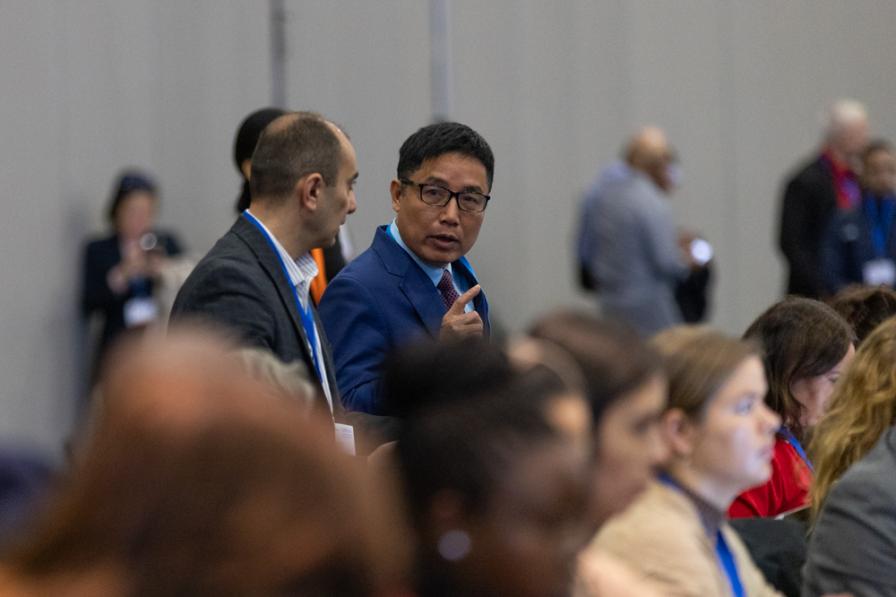The temperate atmosphere in the Shaw Center was a welcome contrast from the snowy morning on the second day of the fourth session of the Intergovernmental Negotiating Committee (INC-4) to develop an international legally binding instrument (ILBI) on plastic pollution, including in the marine environment.
Want to dig deeper into today's talks? Read the full Earth Negotiations Bulletin daily report.
Meeting throughout the day in contact group and subgroup settings, delegates engaged in discussions on how to streamline the Revised Draft Text of the ILBI, both technically and substantively. Contact Group 1 met in the morning, providing an opportunity for delegations to share their preferences for the technical elements of a future international instrument on plastic pollution.
This group identified areas of convergence, including on emissions and releases of plastic waste and waste management. Most delegations have voiced their support for a treaty that recognizes that plastic pollution is not just an eyesore, but also poses risks to human health and natural ecosystems. Some governments are already working to address plastic pollution in the natural environment, rolling out beach clean-up schemes at the local level, and imposing taxes or levies on problematic plastic products, such as lightweight plastic bags being discarded in protected areas. Questions remain about whether globalizing these efforts would be enough to comprehensively end plastic pollution, and about what to do with the plastic waste collected if, indeed, chemical recycling does not work.
During the day, subgroups also met to discuss issues related to, among others:
- Financing;
- Implementation plans and compliance; and
- Objectives, scope, and just transition.
Subgroup discussions on financing were long and drawn out, with delegates spending a considerable amount of time debating if and how to restructure this part of the Revised Draft Text. Several countries prioritized the discussion of a robust financial mechanism to guarantee adequate financing for the implementation of the new treaty. Others preferred to address implementation financing more generally, arguing that a wide range of sources would need to be identified to provide the level of financing required to satisfy all needs.
Delegates also discussed, among others, the relevance of national action/implementation plans, as well as whether their parameters should be defined by individual parties, the treaty or the governing body. Calling for assurances that the national action/implementation plans would be well funded, many urged that these plans reflect national capacities and capabilities, and underscored that the main role of these plans is to track the progress of treaty implementation.
Delegates agreed to postpone subgroup discussions to address streamlined provisions related to, among others, extended producer responsibility (EPR), emissions and releases, waste management, and the transboundary movement of hazardous plastic waste. Discussions will continue on Thursday.
To receive free coverage of global environmental events delivered to your inbox, subscribe to the ENB Update newsletter.
All ENB photos are free to use with attribution. For INC-4 please use: Photo by IISD/ENB - Kiara Worth
